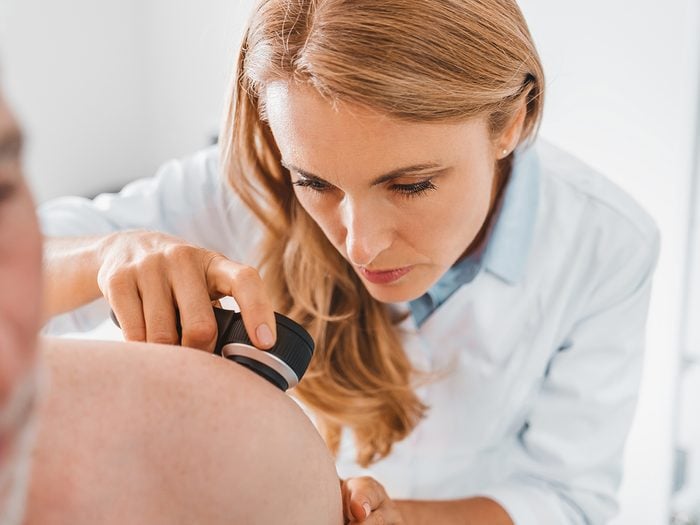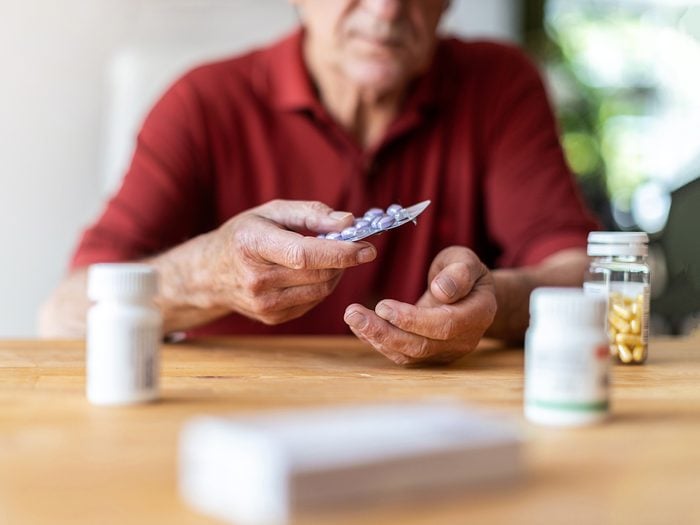
Do you need a check-up?
If they can avoid it, no one wants to go to the doctor during a pandemic. In Ontario alone, that reluctance has resulted in a 28 per cent decrease in primary care appointments. Dr. Amie Davis, a family physician in Hamilton, Ont., says she’s seen plenty of patients go silent over the last two years. At the same time, getting back into the doctor’s office can be life-saving. Many health care experts are worried that pandemic-related interruptions in treatment, care and screening could eventually result in a sudden and significant increase in illness rates, particularly cancer diagnoses. Here are eight symptoms that should get you back into the doctor’s office—pronto.

You have an injury that isn’t getting better
Lower back pain and neck strain has significantly increased during the Zoom-heavy era of working from home. One American study found an 84 per cent increase in back pain- related tweets in 2020 compared to the year before. If you are experiencing back or neck pain and things aren’t getting better after you’ve applied heat and ice or rested, head to a doctor for a diagnosis and treatment plan.
Here are 10+ ways to manage everyday aches and pains.

You’ve lost weight and you don’t know why
Inexplicable weight loss can be a symptom of a more serious health issue, says Davis. Possibilities include a thyroid disorder, diabetes, cancer or Crohn’s disease. There’s no specific amount that raises a red flag, but experts suggest alerting your doctor if you’ve lost five per cent or more of your overall body weight.
Discover more reasons unexpected weight loss could be a serious problem.

You have a strange-looking mole
Moles that look different aren’t always something to worry about, but in some cases they can turn out to be melanoma. “Look at your moles,” says Davis. “If they are asymmetrical, have a border, have changed colour, the shape is different or changed in diameter, get it checked out.”
These are the four skin changes you should never ignore.

You’ve been consuming too much alcohol or cannabis
One survey found that 25 per cent of Canadians aged 35-54 drank more alcoholic beverages while at home during the pandemic, citing stress and boredom. Additionally, the Centre for Addiction and Mental Health found that just over half of cannabis users reported an increase. Higher use of alcohol and cannabis is linked to declines in mental health, which shouldn’t be ignored.
Can CBN really help you sleep? This writer tested it to find out.

You feel depressed
Half of Canadians polled by Angus Reid reported that the pandemic had negatively affected their mental health—one in 10 said by “a lot.” If you are feeling chronically unhappy or anxious to a degree that affects your day-to-day functions, tell your doctor.

You missed your pap smear or mammogram
The pandemic caused a dramatic decrease in cancer screenings. According to Ontario Health, there were one million fewer screenings for colon, breast and cervical cancer between March and December 2020. If you missed yours or if a screening test was cancelled as a result of the pandemic, reschedule now. Cancer screenings can capture a problem before it becomes severe, and early diagnosis can be associated with less invasive forms of treatment and overall better outcomes.
Read about how this doctor helps breast cancer patients prepare for treatment.

You’ve been refilling a prescription
If you have a chronic health condition that requires prescription medication and you’ve simply been refilling it during the pandemic, it may be time to review its efficacy, says Davis. You may need less medication or a different medication, or it might be a good idea to undergo a process of de-prescribing, she explains—but only a check-up can give you the right answer.
Don’t miss the 16 prescription drugs and supplements you should never mix.

You’re more forgetful
Prolonged feelings of isolation can negatively affect health among seniors, including cognitive ability and physical mobility. If you’ve noticed a decline in your memory or cognition, or if you’re experiencing a reduction in mobility as a result of increased sedentary time, it needs to be addressed.
Next, check out how magic mushrooms may help people with terminal cancer.